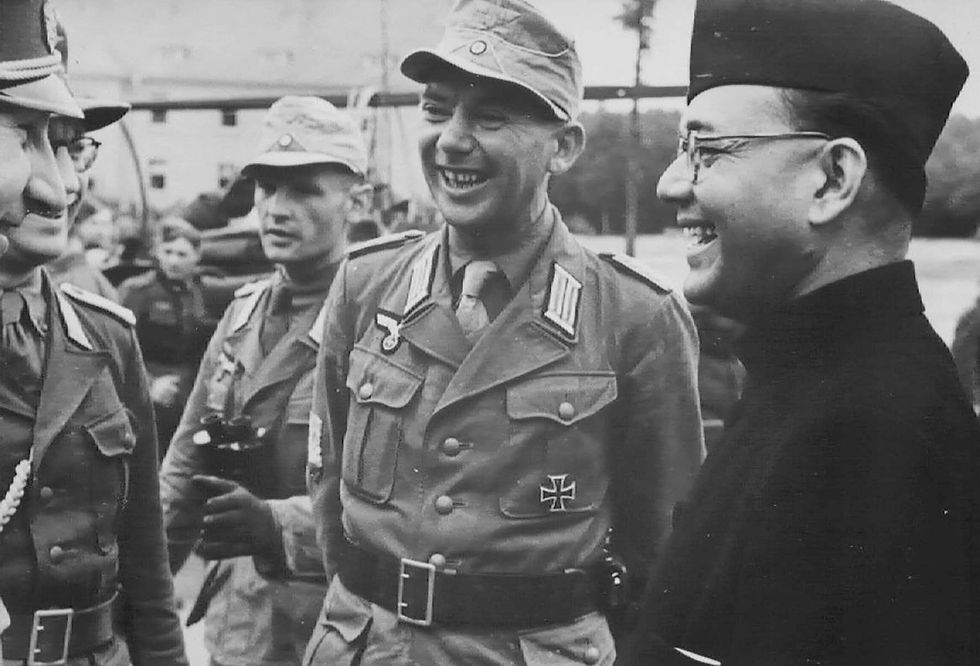The Truce Mirage: Why the Israel-Hamas Ceasefire Cannot Guarantee Peace
- Christoph Ernst

- Jan 20
- 4 min read
Updated: Jan 21
The Western assumption that all conflicts are amenable to negotiation misunderstands the zero-sum logic that governs much of the Middle East’s political calculus.

The Israel-Hamas truce, brokered with international mediation, offers a rare moment of respite in a region scarred by ceaseless strife. Such pauses in violence, however welcome, often amount to little more than temporary relief.
In Gaza, hatred is not merely circumstantial but is systematically inculcated. Generations of Palestinians have been raised on narratives that exalt resistance and vilify Israel, perpetuating a culture where martyrdom is celebrated and reconciliation scorned. This is not merely Hamas’ rhetoric, but a worldview woven into educational curricula, media and familial traditions.
Forty years ago, I encountered, across much of the Middle East, a troubling reverence for the atrocities of Adolf Hitler—sometimes explicit, with raised right arms. In Palestinian households, images of Haj Amin al-Husseini, the Grand Mufti of Jerusalem and an ardent Nazi collaborator, adorned walls with an unsettling pride.
This is not to suggest that every individual in the region was steeped in anti-Semitism or harboured hatred for the Jews. Hatred, as it turns out, is a learned behaviour, one that can be fed at a mother’s breast and reinforced in childhood classrooms. Gaza exemplifies this process with chilling clarity: an entire generation raised amid a cacophony of grievance and indoctrination.
The notion of a meaningful alternative to Hamas emerging from within Gaza is a mirage. As long as the group retains its stranglehold on power, lasting peace will remain stifled under the weight of its radical agenda. The West often underestimates the ideological chasm. The ethos of groups like Hamas is not rooted in pragmatic grievances alone but in an existential rejection of Israel’s right to exist. This ideological hostility transcends any specific Israeli policy and is directed at the very being of the Jewish state.
Paternalistic Westerners often assume they can reason with fundamentalists, engaging on what they imagine to be shared terms of dialogue. And they can—as long as it serves the fundamentalists’ ends. These radicals have mastered the use of Western idioms, deftly wielding terms like ‘racism,’ ‘Islamophobia,’ or ‘imperialistic oppression’ as rhetorical weapons. But beneath the veneer of this tactical fluency lies a worldview that runs counter to the liberal ideals such words ostensibly defend. A ‘good Muslim,’ as defined by strict adherence to certain interpretations of the Quran and Hadiths, sees themselves as inherently superior to the ‘other.’ Non-Muslims, the dhimmis, are expected to defer, to remain silent, lest they provoke retribution for violating an established hierarchy.
Power is expressed through dominance and the humiliation of the defeated. The sense of chivalry and honour embodied by Saladin has long since faded, replaced by a more ruthless ethos: loyalty to family, clan and the umma takes precedence, irrespective of the justice of their cause. Tolerance is embraced only when it serves as a one-way street, extended by necessity but never reciprocated. To do otherwise would be seen as folly, as weakness.
Cultural relativism, a cornerstone of contemporary Western thought, finds no purchase in this framework. It is an alien concept, untranslatable into the rigid binaries of believer and infidel. For the kuffar, the non-believers, there is no space for nuanced coexistence.
History offers instructive parallels. Consider the treatment of Jews in Europe 250 years ago (or as recently as 120 years ago in Russia) when systemic oppression and persecution were the norm. Now, look at the plight of Christians in Egypt, Syria, or Turkey today, communities facing relentless marginalization and violence. Baghdad, once a predominantly Jewish city, saw its ancient Jewish population decimated in the 1938 pogrom. The exodus of Iraqi Jews culminated after 1948, driven by anti-Semitic fervour framed as vengeance for the Arab defeat in Palestine. Many of these Jews had lived in Mesopotamia since the days of the Babylonians, a millennium before the birth of Mohammed.
The Western Left, sorry to say, appears profoundly dim-witted and destructively self-loathing. Its worldview is strikingly anti-historical, steeped in violent self-flagellation. For me, the Left’s moral posture is the worst kind of paternalism: a toxic blend of self-belittlement cloaked in false virtue, paired with wishful thinking that borders on the childish.
Take, for instance, the way the Left bandies about terms like ‘fascist’ with abandon. If Donald Trump is seriously considered a ‘fascist,’ then what word is left for Vladimir Putin, Recep Tayyip Erdogan, the autocratic Arab leaders, Iran’s mullahs or Xi Jinping? In Germany, this inflation of terminology has reached an almost comical extreme, where anyone politically to the right of the Greens or Social Democrats is reflexively labelled a ‘Nazi.’ The problem with such rhetorical overreach is not merely semantic but profoundly counterproductive. By trivializing the language of historical atrocities, it effectively rehabilitates the very predators it seeks to condemn.
In the Middle East the path to self-correction is far more arduous. The ideological rigidity of Hamas, coupled with the cultural norms that prize dominance over dialogue, leaves little room for the kind of compromise necessary for peace.
As Nietzsche once put it, to be a good friend you must not turn a blind eye to the weaknesses or the ‘enemy’ in the friend. Else, your friendship becomes complicity. For the West, this means recognizing that the road to peace in Gaza runs not through appeasement but by dismantling the structures that perpetuate hatred.
(The author is an historian and novelist who writes historically-aware crime fiction. Views personal)





Comments